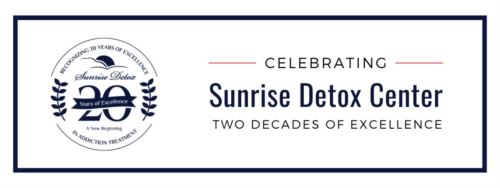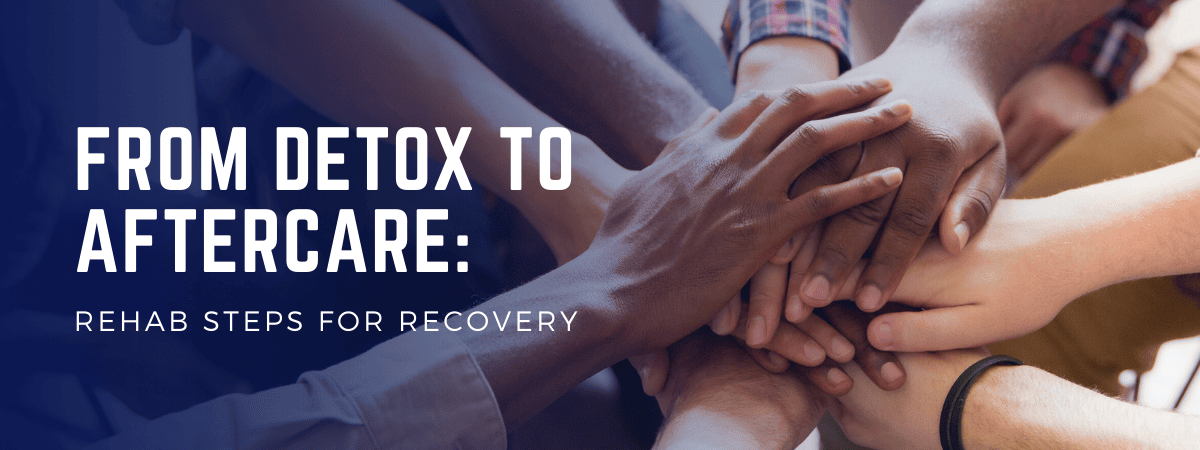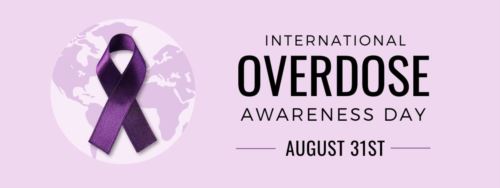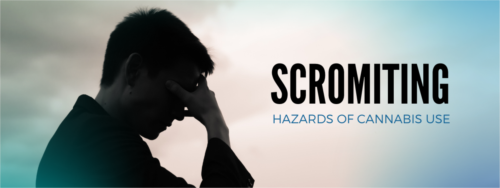

From Detox To Aftercare: Rehab Steps For Substance Use Recovery
From Detox To Aftercare: Rehab Steps For Substance Use Recovery
When you’re ready to quit using alcohol or addictive drugs, your greatest chance for success is to start rehab. However, rehab isn’t a single step or treatment center. Drug and alcohol addiction rehab and recovery is a multi-tiered process with different stops along the way. But don’t let that discourage you. Being aware of the stages of rehab will help you find the courage to begin. You can rest assured that at each point, you’ll encounter caring, specialized healthcare professionals ready to help you get well and live your best life.
Stages Of Rehab And Your Unique Journey
Alcohol and drug addiction is both a mental and physical disorder. The many steps of rehab treat both aspects so you can fully recover over time. Different healthcare providers could employ different addiction treatment strategies, but proven rehab steps include:
- Inpatient detox
- Inpatient rehab
- Outpatient support
- Further aftercare
Each individual’s experience with substance use disorder is unique, and so is their recovery journey. While you’ll undergo the same steps of rehab in Long Island as other individuals, how you accomplish those stops might be different. Many individuals redo steps or start over, in some cases several times, before they ultimately reach recovery. The important thing is to seek skilled treatment and always work step by step toward sobriety.
Substance Detox Is The Initial Step Toward Recovery
When it’s time to quit using habit-forming drugs or alcohol, your initial step is to detox from those chemicals and permit your body to remove them away. Unfortunately, if you’re physiologically reliant on those chemicals, withdrawal can result and cause you to feel very sick.
To successfully detox, you must enter a medically guided detox program. You’ll live at a detox center and receive 24-hour medical care to ease withdrawal symptoms and keep you safe. Detoxing can take 7-14 days.
If you happen to relapse, you can always start detox over when you’re prepared to make another attempt.
Substance Rehab Treats The Mental Side Of Addiction
While detoxing focuses on physical recovery, the ensuing step of rehab addresses the mental facet of substance use disorder. During this step, you’ll live in a rehab center far from triggers of alcohol or drug use. You’ll attend various therapies to confront the mental health influences of your substance use and learn beneficial coping devices to replace harmful substances. Those therapies can include differing forms of
- Private counseling working face-to-face with a therapist
- Counselor-led group therapy
If you take substances to manage an undiagnosed or untreated mental disorder, rehab is the perfect time to pursue a diagnosis or begin appropriate treatment. Understanding and addressing co-occurring disorders is vital to recovery.
Just like detox, you can restart this stage of rehab as many times as you need.
Progressing To Outpatient Treatment
You are able to remain at your rehab center as long as you need to feel well enough to go home. But even once you return, treatment isn’t completed. You still have a right to skilled care to remain sobert. At this phase, you’ll profit from outpatient treatment that lets you sleep at home and gradually return to your regular lifestyle.
Outpatient treatment uses continual psychiatric care from experienced professionals to let you reside at home without suffering a relapse. Mental health facilities that specialize in substance use recovery are ideal for this stage of rehab in Long Island. They will have several levels of outpatient support to provide the structure and routine that helps prevent relapse.
Partial hospitalization programs (PHP) involve attending addiction and mental health treatment during the week for several hours each day. You may stay at home or a neighboring sober living center when you’re enrolled in PHP.
Intensive outpatient programs (IOP) supply care during the week to keep you progressing in your recovery while you reside at home and go to work and other responsibilities.
You could also attend medication management sessions at this phase. If you’ve been prescribed medicine to minimize substance cravings or manage a mental health condition, it’s vital you have a medical professional helping you manage dosing and side effects.
Further Aftercare Options
During every rehab step, you’ll develop an aftercare plan with a skilled counselor. Your aftercare plan will outline your next steps of treatment to maintain your recovery momentum. Eventually, you’ll “graduate” through the steps of rehab and find yourself on the verge of recovery.
It’s a significant accomplishment to reclaim control of your life to the point that frequent treatment is no longer required. However, you won’t be left without different choices for additional support. Here are several things you may do:
- Continue to see a qualified counselor
- Participate in twelve-step meetings or comparable support groups
- Frequently remind yourself of the lessons you learned throughout your recovery
- Build connections with understanding people
- Engage in beneficial interests and hobbies
- Return to any rehab step if you ever feel yourself in a struggle to maintain sobriety
You may not ever be entirely “cured” of addiction, but recovery is possible when you adhere to the steps of rehab in Long Island. Revisiting those different phases as often as needed and depending on your network of support will let you live a sober life down the road.
Start The First Steps Of Rehab Near Long Island Today
Wherever you are in your recovery journey, Sunrise Detox Long Island will help you get the treatment you need. Give us a call at 631-857-3800 now or submit the following contact form to have a helpful conversation about where to get the right treatment. All phone calls are free and confidential. We are ready to guide you today.



